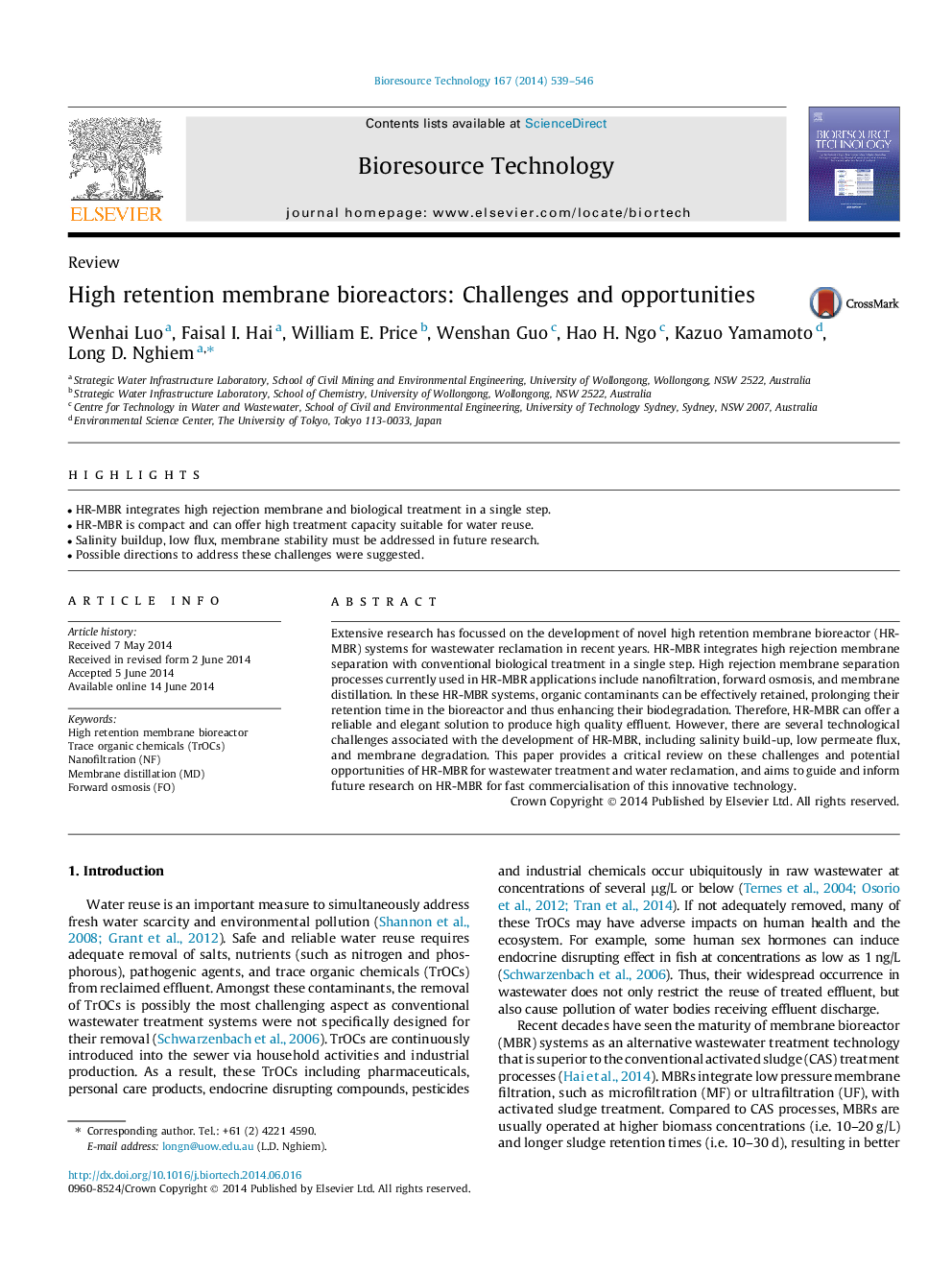| Article ID | Journal | Published Year | Pages | File Type |
|---|---|---|---|---|
| 7076487 | Bioresource Technology | 2014 | 8 Pages |
Abstract
Extensive research has focussed on the development of novel high retention membrane bioreactor (HR-MBR) systems for wastewater reclamation in recent years. HR-MBR integrates high rejection membrane separation with conventional biological treatment in a single step. High rejection membrane separation processes currently used in HR-MBR applications include nanofiltration, forward osmosis, and membrane distillation. In these HR-MBR systems, organic contaminants can be effectively retained, prolonging their retention time in the bioreactor and thus enhancing their biodegradation. Therefore, HR-MBR can offer a reliable and elegant solution to produce high quality effluent. However, there are several technological challenges associated with the development of HR-MBR, including salinity build-up, low permeate flux, and membrane degradation. This paper provides a critical review on these challenges and potential opportunities of HR-MBR for wastewater treatment and water reclamation, and aims to guide and inform future research on HR-MBR for fast commercialisation of this innovative technology.
Keywords
Related Topics
Physical Sciences and Engineering
Chemical Engineering
Process Chemistry and Technology
Authors
Wenhai Luo, Faisal I. Hai, William E. Price, Wenshan Guo, Hao H. Ngo, Kazuo Yamamoto, Long D. Nghiem,
